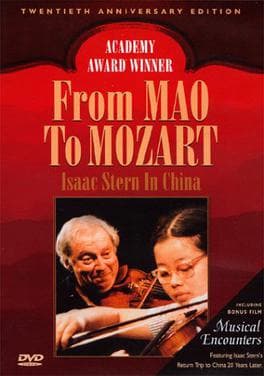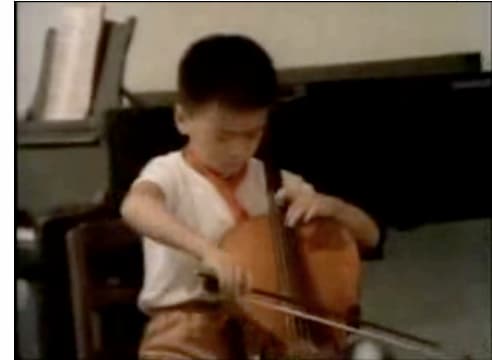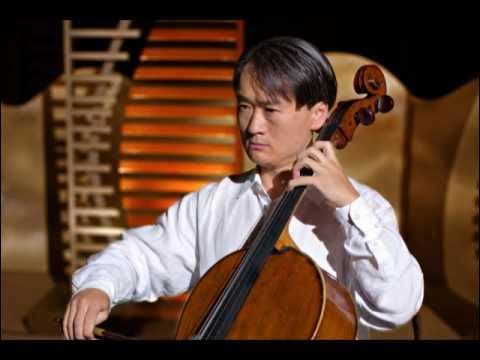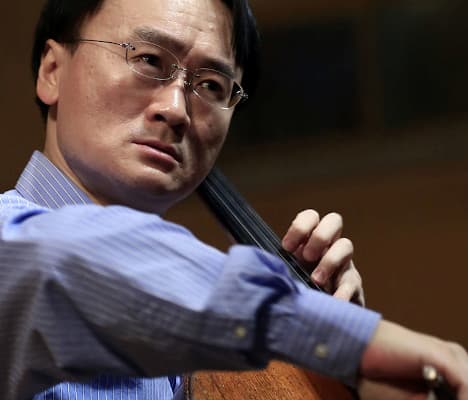The 1980 documentary From Mao to Mozart: Isaac Stern in China provides a fascinating look at China’s cultural and political landscape in the wake of the Cultural Revolution. Isaac Stern’s journey to China not only offered a glimpse into the country’s evolving relationship with Western music but also captured interactions with Chinese musicians. Most prominently among them was a 10-year-old student from the Shanghai Conservatory of Music, the cellist Jian Wang. Stern’s visit to China paved the way for Jian Wang to continue his studies in the United States, and he has since embarked on a stellar international career, becoming one of the most prominent, exciting and respected artists on the classical stage today.
Jian Wang Performs Bach’s Cello Suite No. 6 in D Major (excerpts)
Growing Up

From Mao to Mozart: Isaac Stern in China
Jian Wang was born in Xi’an, Shaanxi province, on 26 December 1968. He came from a highly musical family as his father was a cellist, and his mother was a flautist who had graduated from Xi’an Conservatory of Music. As was so often the case, the Cultural Revolution severely disrupted family life. His father was sent to Shanghai to play in propagandistic opera productions, and his mother, stripped of her career as a flautist, was forced to stay in Xi’an.
Jian went to Shanghai with his father, and “I did not have a mother until I was 12,” he explained. “For 12 years, she could see me only one week every year.” When Jian was 4, his father borrowed a viola so that the boy could imitate his practice on the cello, and soon thereafter, he began to teach him basic cello techniques.
Frédéric Chopin:
Cello Sonata in G Minor, Op. 65 (Jian Wang, cello; Carol Rosenberger, piano)
Isaac Stern

Jian Wang in the documentary “From Mao to Mozart: Isaac Stern in China”
Father and son lived in a tiny dormitory room, so Jian frequently had to practice in the courtyard. To toughen up his son, his father also took him swimming in the winter. As Jian recalls, “there was an outdoor diving pool located at today’s Shanghai Symphony Hall. It was bone-piercing cold, but it really benefited my health.”
Jian enrolled into the primary school attached to the Shanghai Conservatory of Music at the age of 9, and he was soon the star of the institution. He was frequently sent to perform for visiting dignitaries, and that included Jimmy Carter and Seiji Ozawa. And in 1979, Isaac Stern visited the school. As Jian explained in an interview, “I didn’t know who Isaac Stern was as we only had access to classical music from Russia.”
Jian Wang Performs Tchaikovsky’s Variations on a Rococo Theme, Op. 33
International Discovery

Jian Wang
Jian remembers a musician in an orange shirt, his face red from the sunburn, and with a pair of glasses pushed to the forehead. “I played for him for a couple of stanzas, and then Mr. Stern called on the camera team to come over. And while I was playing, Mr. Stern kept applauding and saying bravo.” As Jian recalled, “at the time, I didn’t know how important it was, but it was the moment that changed my life.”
The documentary turned Jian Wang into an international cello prodigy who played the cello with a big frown and with his eyes often closed. As he recalls, “I had this bitter and serious look since I was a child, strange facial expressions even I didn’t like. But then I realised it revealed my effort… When you play, you have to open your heart and remove all the masks, so that you concentrate on the deepest and strongest emotion from the bottom of your heart. You can’t possibly have a smile on your face at times like this.”
Franz Joseph Haydn: Cello Concerto No. 2 in D Major, Hob. VIIb:2 (Jian Wang, cello; Gulbenkian Orchestra; Muhai Tang, cond.)
Departure

Jian Wang
When the famed cellist and pedagogue Aldo Parisot was on a visit to China, he actively searched out Jian Wang. Parisot encouraged Wang to come to Yale to study with him, and when the Chinese-American businessman Sau-Wing Lam saw the Stern documentary, he became obsessed with getting Wang out of China. Jian recalls, “he wrote a letter to my father
saying he would take care of everything and would treat me exactly like his own son.”
As such, Wang found himself in the United States by the age of 16 and studying with Parisot at Yale. Parisot had 60 years of experience, and a huge number of students came through his studio. However, as Wang explained, “none of us play alike as he was more interested in making his students a better version of themselves, rather than to make them a poor version of the teacher.” Jian Wang studied with Parisot for 7 years, 3 at Yale and 4 at Juilliard, and he “learned everything about playing the cello from him, and also how to be a performer.”
For more of the best in classical music, sign up for our E-Newsletter
